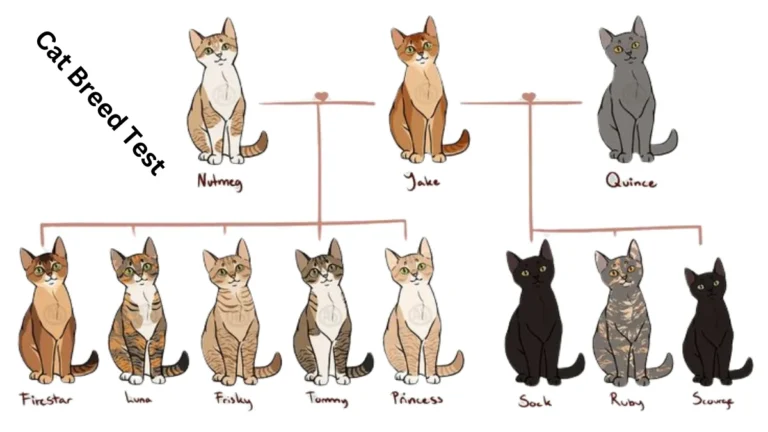Introduction:
Cat breeding in Scotland is a unique blend of artistry, science, and deep-rooted passion. As the demand for quality feline companions continues to rise, responsible cat breeders in Scotland are stepping up to ensure that ethical practices take center stage. These dedicated individuals are not just creating beautiful cats; they are also committed to preserving the health and temperament of each breed. In this article, we will explore the vital aspects of being a cat breeder in Scotland, from ethical practices and health care to the importance of genetic testing and participation in cat shows. Whether you’re considering adding a furry friend to your family or simply wish to understand the world of cat breeding in Scotland, this guide will provide you with invaluable insights into this fascinating and rewarding endeavor.
Understanding Responsible Cat Breeding
The Importance of Ethical Practices
Ethical breeding practices are crucial. Responsible breeders prioritise the health and well-being of their cats above profit. They conduct thorough research on breed standards and adhere to guidelines set by cat breeding organisations. This dedication ensures that kittens are bred for health, temperament, and conformation.
Health and Wellness
Keeping up with the strength of rearing felines is vital. Capable raisers guarantee ordinary veterinary check-ups, immunizations, and preventive consideration. These visits assist with recognizing medical problems early. Keeping point by point wellbeing records for each feline is likewise fundamental. This documentation consoles imminent proprietors about the cat’s prosperity.
Genetic Testing
Genetic testing is vital in responsible cat breeding. Many breeders conduct tests to identify hereditary conditions specific to certain breeds. By understanding the genetic background, breeders can make informed mating decisions. This reduces the chances of passing on genetic disorders to the kittens.
Common conditions to test for include hip dysplasia and heart disease. Sharing test results with potential owners fosters transparency and trust.
Vaccination and Health Protocols
Following established vaccination protocols protects both breeding cats and their kittens. Responsible breeders maintain regular vaccination schedules to prevent infectious diseases. They also implement health measures, including deworming and flea prevention, to enhance overall well-being.
The Role of Cat Shows in Breeding
Showcasing Quality Cats
Cat shows play a significant role in the breeding community. These events allow breeders to showcase their cats, promoting responsible practices. Competitions highlight dedication to producing high-quality felines that meet breed standards.
Judges assess cats based on conformation, temperament, and health. This feedback helps breeders identify areas for improvement, motivating them to enhance their breeding programs.
Networking and Education
Feline shows are fantastic systems administration potential open doors. Raisers associate with industry experts, sharing information and encounters. Many shows likewise highlight courses on progressions in cat wellbeing and rearing practices.
These occasions give forthcoming proprietors the opportunity to meet raisers and their felines. This association assists purchasers with surveying various varieties and settling on informed conclusions about their future partners.
Challenges Faced by Cat Breeders
Maintaining High Standards
One challenge for breeders is maintaining high standards. With growing demand for certain breeds, some may compromise ethical practices. Responsible breeders must stay vigilant, prioritising the welfare of their cats over profit.
Adhering to breed standards requires ongoing education and adaptation. Many breeders collaborate with veterinarians to stay updated on the latest research and best practices.
Financial Constraints
Breeding cats responsibly involves significant financial investment. Costs for veterinary care, health testing, and maintaining a safe environment can quickly add up. While sales help offset these expenses, fluctuating demand can pose challenges.
Additionally, competition from less reputable breeders can make it difficult to attract buyers who value ethical practices. Therefore, careful financial planning is essential for sustainability.
The Future of Cat Breeding in Scotland
Trends in Responsible Breeding
The future of cat breeding in Scotland will likely see a growing emphasis on responsible practices. As awareness of animal welfare increases, prospective owners become more discerning. This trend encourages breeders to prioritise health testing and transparency in their operations.
Advancements in genetic testing and veterinary care will continue to improve the breeding process. Breeders will have better tools to identify hereditary conditions, resulting in healthier kittens.
Embracing Technology
Technology will play a significant role in the future of cat breeder in Scotland. Online platforms allow breeders to showcase their cats and connect with potential buyers more effectively. Virtual consultations and online sales processes are becoming increasingly popular.
Breeders can also use technology for health monitoring and record-keeping. This digital shift streamlines operations and enhances communication with prospective owners.
FAQ 1: What should I look for in a responsible cat breeder in Scotland?
When searching for a responsible cat breeder, consider the following factors:
- Health Testing: Ensure the breeder conducts genetic testing and health screenings for their cats to identify any hereditary conditions.
- Clean Environment: The breeding facility should be clean, safe, and provide adequate space for the cats.
- References and Reviews: Look for reviews or ask for references from previous buyers to gauge the breeder’s reputation and commitment to ethical practices.
FAQ 2: How can I prepare for a new kitten?
Preparing for a new kitten involves several steps:
- Create a Safe Space: Set up a designated area with essential supplies, including a litter box, food and water dishes, and a comfortable bed.
- Gather Supplies: Purchase high-quality cat food, toys, scratching posts, and a carrier for trips to the vet.
- Schedule a Veterinary Visit: Schedule a check-up with a veterinarian soon after bringing your kitten home to ensure their health and discuss vaccinations.
FAQ 3: What are the common health issues in specific cat breeds?
Different cat breeds may be prone to specific health issues. Here are a few examples:
- Persians: Prone to respiratory issues and polycystic kidney disease (PKD).
- Siamese: May face dental problems and respiratory conditions.
- Maine Coons: Susceptible to hypertrophic cardiomyopathy (HCM), a heart condition.
It’s essential to research breed-specific health issues and discuss them with your breeder or veterinarian to ensure your cat’s long-term health.




